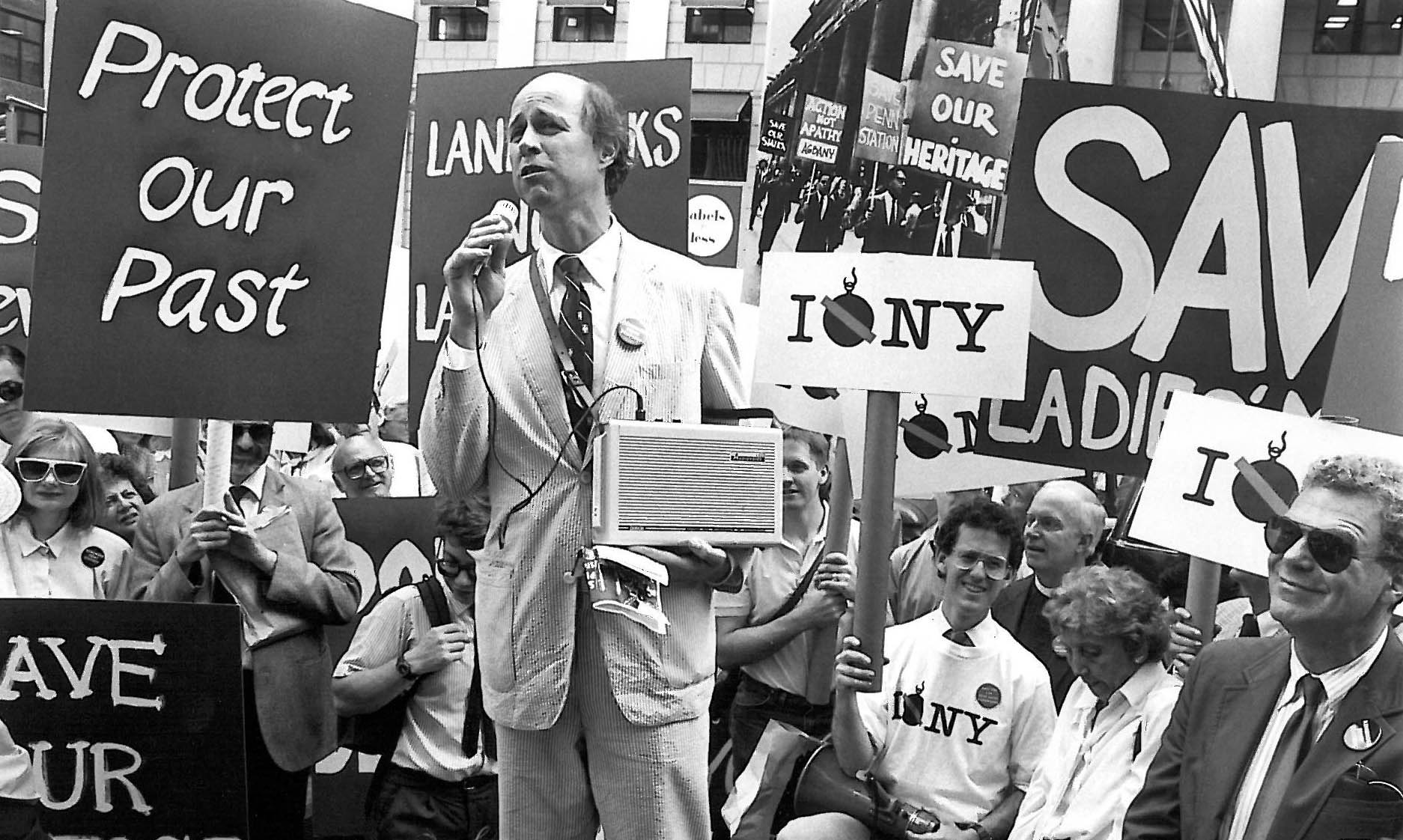Fight over NPR funding: is it a “culture war,” or principled debate?
What’s really at stake in the battle over federal funding to NPR, and how can the field’s advocates make the best case for continued support? Public broadcasters began speaking out last week in friendly venues, testing their message points and strategizing about whether and how to mount a more aggressive campaign to enlist broad public support.
At yesterday’s Public Media Camp in Washington, D.C., attendees discussed the political attack with Jay Rosen, press critic and j-school professor at New York University, who participated via Skype in a session on the response to the “culture war.” Rosen, who described himself as sympathetic to the fight to preserve federal funding, called for a blogger — one who works independently and outside of NPR and PBS — to report on the debate, critique press coverage of it, and call out the “most outrageous statements” from the field’s partisan critics. “A blogger’s job is to intervene in public debate and make it smarter,” Rosen said.
It’s unclear what role, if any, NPR can play in marshalling support through its social media networks. Ethics guidelines prohibit NPR’s social media team from enlisting NPR Facebook fans and Twitter followers to the political cause of preserving federal aid, said Andy Carvin, senior social media strategist, although the network’s leadership is reconsidering these rules as part of the broader review of its standards and practices. Carvin moves between NPR’s newsroom and its digital media division, and, under the current policy, has to follow NPR’s news ethics rules in managing the social media desk. “Everyone realizes we’re sitting on a gold mine of support,” he said.
Carvin and other pubmedia staffers in the session were mindful of how easily such a manuever could backfire, although no one in the room seemed to remember the drubbing that public broadcasting took in 1999, after revelations that WGBH in Boston had swapped donor lists with the Democratic Party. Others proposed creative and traditional approaches that would be less overtly political and divisive.
“You need a grassroots movement catalyzed by the people,” said Peter Corbett, interactive strategist and an organizer of Public Media Camp. Mounting a partisan offense will backfire, he said, proposing an “I ♥ NPR” social media campaign that allows advocates in the audience to identify themselves — and each other — and organically builds a network of political support.
Public stations must step up to make the case, as they have in past fights over CPB, said Maxie Jackson, president of the National Federation of Community Broadcasters, in part because of the damage already done by NPR’s dismissal of former news analyst Juan Williams. “You’ve got to take NPR off the table,” Jackson said. A front-and-center role by NPR would be “poisonous at this point,” he said, especially given NPR’s bad track record with audience and workforce diversity. Matt Thompson of NPR’s Argo Network produced a live blog of the session, which was inspired by a MediaShift article by Jessica Clark of American University’s Center for Social Media.
So far, NPR is taking the high road in responding to attacks by Fox News and Republican congressional leaders, observes Los Angeles Times media critic James Rainey, in an analysis of the opening salvo of the political campaign to “defund NPR.”
“Moving NPR to the top of the GOP cut list has much more to do with symbolism and bowing to an emboldened political base than with good government, impartial media or serving the average citizen,” Rainey writes. “After all, the audience for public radio has grown 60 percent over the last decade. Forty million listeners now tune in each week.”
Rainey reports that small, rural stations — not big-city outlets like KCRW and KPCC in Los Angeles — will be hardest-hit if the energized GOP delivers on its threat to end federal support of the field, quoting KCRW General Manager Jennifer Ferro: “When they talk about killing the Corporation for Public Broadcasting allocation to NPR, they are talking about taking it away from the people who already have the weakest voice,” she says.
In a Nov. 18 speech at the University of Southern California’s Annenberg School of Communications, NPR President Vivian Schiller made the case for public radio by describing how NPR’s journalists in Baghdad and Afghanistan risk their lives to report from war zones. “I worry it is way too easy to forget the dangers and sacrifices real journalists make at a time when we all refer to news stories as ‘content,’ when the work of field reporters is sliced and diced into a zillion cyber pieces, when news is something we aggregate, Tweet and blog upon,” Schiller said during her Loper Lecture in Public Service Journalism. NPR is among the very few news organizations that continues to invest in “the hard work of boots-on-the-ground reporting while at the same time driving innovation and opening ourselves to new audiences,” she said.
“Much of the commercial media is fleeing the reporting business,” Schiller said. “Foreign reporting, investigative reporting, arts reporting and expert local reporting are perhaps most in danger. We know this, it isn’t new. But in the end, it is what all the debates about economic models are all about.”
“We at NPR are doing everything in our power to increase our newsgathering capacity and to help our member stations do the same,” Schiller said. “In some ways, that is our most important job right now.”






